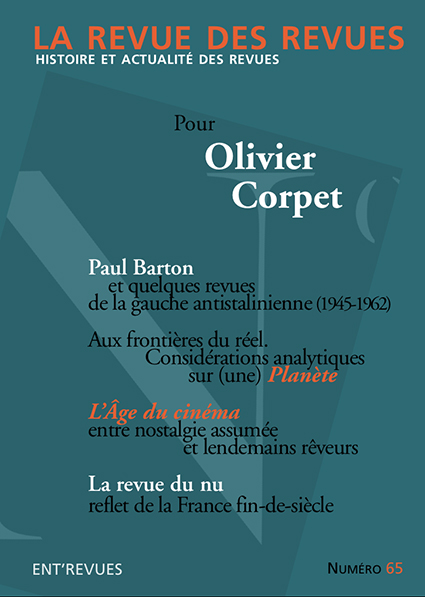par Charles Jacquier
2021, in La Revue des revues no 65
 Cet article évoque Paul Barton et sa collaboration aux revues antitotalitaires des années 1950 à travers deux publications qui se situent en dehors du champ des périodiques pour artistes et intellectuels. Parallèlement à sa collaboration à Preuves, Le Contrat social ou Saturne, ce dernier fonde et anime, de 1951 à 1954, Masses-Information, modeste bulletin ronéoté sur la Tchécoslovaquie qui aborde à travers articles inédits et traductions les principaux aspects économiques, politiques et sociaux de la « démocratie populaire ». La seconde, La Révolution prolétarienne, est, depuis 1925, une revue syndicaliste révolutionnaire opposée au stalinisme. Barton y apporte son analyse des luttes de classes sous la « démocratie populaire » et des perspectives de la révolution antitotalitaire après l’insurrection hongroise de 1956. L’article s’interroge enfin sur les raisons possibles de l’oubli qui frappe cet auteur et ces revues jusqu’à aujourd’hui.
Cet article évoque Paul Barton et sa collaboration aux revues antitotalitaires des années 1950 à travers deux publications qui se situent en dehors du champ des périodiques pour artistes et intellectuels. Parallèlement à sa collaboration à Preuves, Le Contrat social ou Saturne, ce dernier fonde et anime, de 1951 à 1954, Masses-Information, modeste bulletin ronéoté sur la Tchécoslovaquie qui aborde à travers articles inédits et traductions les principaux aspects économiques, politiques et sociaux de la « démocratie populaire ». La seconde, La Révolution prolétarienne, est, depuis 1925, une revue syndicaliste révolutionnaire opposée au stalinisme. Barton y apporte son analyse des luttes de classes sous la « démocratie populaire » et des perspectives de la révolution antitotalitaire après l’insurrection hongroise de 1956. L’article s’interroge enfin sur les raisons possibles de l’oubli qui frappe cet auteur et ces revues jusqu’à aujourd’hui.
Paul Barton and some reviews of the anti-Stalinist left (1948-1962)
This article evokes Paul Barton and his collaboration with anti-totalitarian reviews of the 1950s through two publications which are outside the pale of periodicals that were intended for artists and intellectuals. In addition to his collaboration with Preuves, Le Contrat social and Saturne, Paul Barton founded and led, from 1951 to 1954, Masses-Information, a modest mimeographed bulletin on Czechoslovakia which, through unpublished articles and translations, addressed the main economic, political and social aspects of the “popular democracy”. His second periodical, La Révolution prolétarienne, has been, since 1925, a revolutionary trade-unionist journal opposed to Stalinism. Barton brought to it his analysis of the class struggles under the regime of “popular democracy” and the perspectives of an anti-totalitarian revolution in the aftermath of the Hungarian insurrection of 1956. The article finally questions the possible reasons for the oblivion that strikes this author and these magazines to this day.